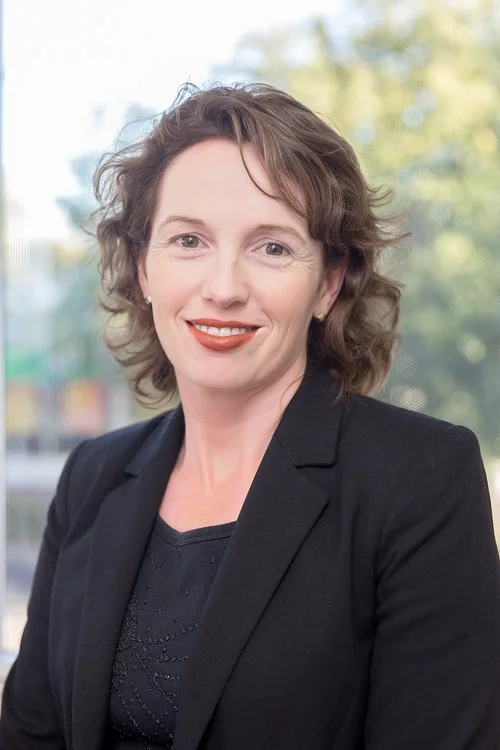Financial Adviser: Interview with Belinda Tink, Foundation Wealth Planners
Family Law intersects many different areas of law, and other professions. It is not uncommon for a Family Law client to need the assistance of several professionals during their matter, some that they will not have come across before.
In this series of articles, we talk to some of the experts we, and our clients, work with during a family law matter. In this series of articles, we will be talking with a Financial Adviser, an accountant, a Barrister, a property valuer, and a conveyancing solicitor. We have asked our experts a series of questions about what they do and how they help our clients, and some frequently asked questions about their profession.
We have also talked with some of our former clients to find out what they wanted to know before entering the Family Law system.
A property settlement often means you must re-arrange your finances and plan for the future. This is when you may consider obtaining advice from a Financial Adviser.
This week, we talk with Belinda Tink, Director at Foundation Wealth Planners in Dubbo. We ask Belinda what a Financial Planner does, and what a Family Law client can expect if they use their services.
Belinda Tink
Financial Advisor, Foundation Wealth Planners, Dubbo
What does a financial adviser do?
Financial advisers focus is on improving the financial position of clients by offering personalised and comprehensive financial planning advice and disciplined and ongoing investment management for clients of various life stages – accumulators, mid-life accumulators, pre and post retirees. The desire is to assist clients in achieving their lifestyle goals and building on these goals through astute accumulation and protection of wealth through efficient investment planning and risk management strategies.
What is the difference between an independent financial adviser and an inhouse adviser who works for a bank or other financial institution?
Privately and locally owned business versus Employees of big institutions and insurance companies
Access to a bigger range of products
Focused on quality advice and strategy solutions versus focused on product sales targets or product-based fees
Get to know you personally versus just to get know you financially
Specialised advice to a select group of clients versus large client numbers, all shapes and sizes
Advising clients for the long term versus High staff turnover, clients get a new adviser again
Clients pay for advice, not overheads versus a big structure, lots of layers, sales teams and big overheads
Business grows by word of mouth versus lots of advertising and cross marketing to customers
On track to achieve clients agreed objectives versus client the last link in the chain
Maintain discipline and accountability versus goals discussed but no accountability
What does it mean that you are a Specialist Adviser and member of the FPA?
To be a member of the FPA, financial planners must have more experience, commit to ongoing education, as well as high professional and ethical obligations.
The FPA member must go through a rigorous and independent accreditation and maintain the high-level skills and knowledge through ongoing education to become a SMSF Specialist and Aged Care Accredited Professional.
What is a Statement of Advice (SOA)?
A Statement of advice will cover the following:
What’s important to you?
Where you are now?
What’s getting in your way?
How can you improve your future?
How much better could your future look?
Are you on track?
Information about any fees charged
What kind of questions do people going through a family law matter ask you?
A financial planner understands anyone who is going through the pain and uncertainty of a divorce is going to be distressed, confused and afraid of what the future might hold. Our role is to can increase the client’s confidence in their decision making about what they need now, and into the future, right through to retirement and have less fears around financial security. Some questions maybe around:
Do I have enough to live on now and into the future.
Can I afford to buy a house or retain the house.
Review of existing insurance and determine the adequacy of them based on change in circumstances.
As an adviser we will ask more questions which will allow them prioritise there goals.
What kind of documents should they bring with them to their appointment?
In preparation for this first meeting we ask that you complete the Living Expense Summary and to bring the following information, if available:
Latest superannuation Statement(s)
Risk Insurance Policies
Details of Assets
Copies of Last Tax Returns
Recent copy of Payslip
Amount of outstanding debts including repayment amounts
Details of currents investments such as shares, managed fund, term deposits
Any other relevant information or issues you may have
How do financial advisers charge for their services?
The cost of financial planning will depend on the complexity of your financial situation and plan.
It is important you are always comfortable with the adviser you are dealing with; therefore the first appointment is generally a free no obligation consultation. In order for us to design a specifically tailored strategy and solution for you it is important that we have as much information about your current situation as possible. Consider what you are looking to achieve, your dreams, goals and desired both now and in the future
After all information has been gathered, a fee proposal will be provided. This can be paid by Bpay, Direct Debit or Portfolio Deduction.
We would like to thank Belinda for taking the time to answer our questions. If you would like to get in touch with Belinda, she can be found at https://foundationwplan.com.au
The Financial Planning Association of Australia also has information you may find useful. Their website is https://fpa.com.au
Please note: the information in this article is general in nature and is not legal or financial advice. For legal advice about your circumstances, contact us to make an appointment with one of our solicitors.

